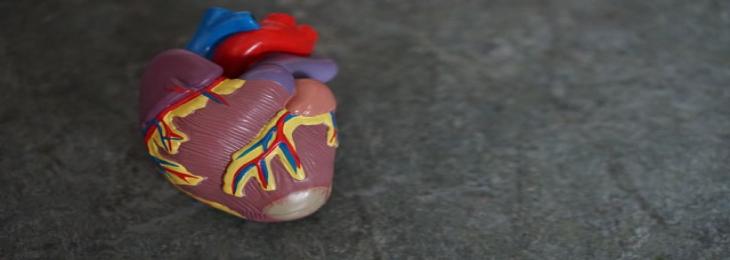Aug, 2021 - By WMR

A new medicated-spray was recently developed to treat the damaged cardiac tissue post heart attack to avoid the risk of heart failure in future.
Cardiac attack leads to certain blockage in heart that damages cardiac tissues. After a cardiac attack, non-beating scar tissue grows in a same damaged region of the cardiac tissue that may permanently weaken the heart. To overcome these consequences, a research team from Dushu Soochow University in China developed a liquid solution that aids in treating cardiac damages.
Initially, stem cell therapy was considered as promising method to regrow cardiac tissue on a damaged heart; however it was observed that the therapy could lead to uncontrollable cell growth or problematic immune responses. Scientists researched on the therapy to overcome the limitations. They studied the membranous sacs produced by stem cells known as exosomes. Exosomes consists of proteins, lipids and nucleic acids which are secreted by stem cells. Researchers perceived that exosome could safely aid in the regrowth of cardiac tissue and may treat the cardiac damages.
In previous stem cell therapy, exosomes were directly exposed to the heart by their application on the damaged cardiac surface in the form of an adhesive patch or by injecting them right into the damaged tissues. In this approach, exosomes tend to break down quickly and may involve risky and invasive open-heart surgery later. Further, a new liquid solution was developed combining exosomes with fibrogen to overcome this risk of severe immune reponses. The liquid is a protein that aids in blood clotting. It was structured into tiny double-barrelled syringe by loading it into one of its barrel, while the other barrel was filled with additional clotting protein known as thrombin.
In the lab test of this new medicated-solution over rats and pigs, it was observed that the spray lasted longer and healed certain damaged cardiac tissues better than earlier therapy of injecting exosomes directly into the heart. The spray also led to less severe immune reactions and less surgical stress that could be the cause of open-heart surgery. Researchers claimed that, the therapy is still under observation and could be practiced soon in real-time in future.

We will be happy to help you find what you need. Please call us or write to us: